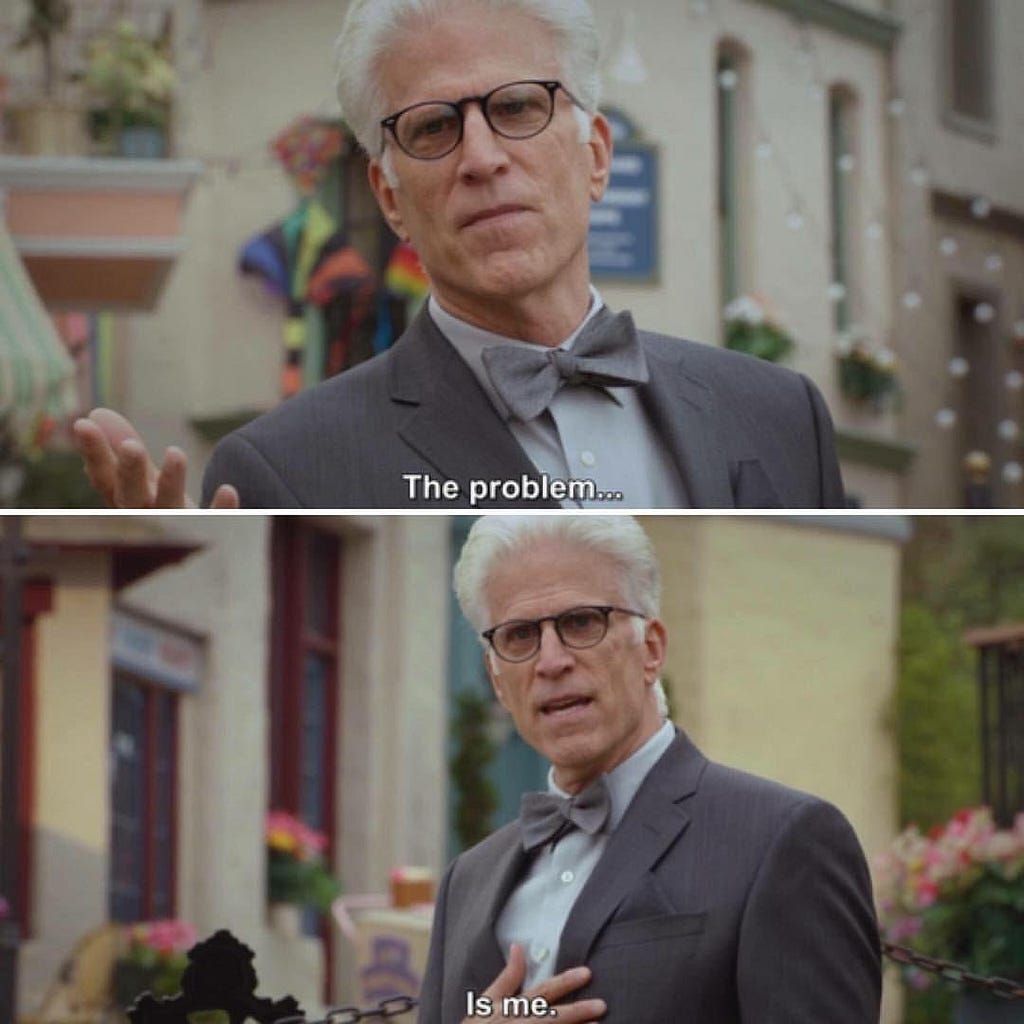Alyson Shane of Starling Social: Five Things You Need To Be A Highly Effective Leader During Uncertain & Turbulent Times

Communicate clearly and address feedback and concerns. Don’t sweep anything under the rug; tell your team and clients what’s happening, what you’re doing to address and manage or solve it, and end by inviting feedback for discussion and clarity.
As part of our series about the “Five Things You Need To Be A Highly Effective Leader During Turbulent Times”, we had the pleasure of interviewing Alyson Shane.
Alyson Shane is a writer, business owner, and artist who has been publishing content online for 22 years. She’s the President of Starling Social Inc., an award-winning digital marketing agency specializing in content strategy.
Alyson has a Bachelor of Arts in Rhetoric, Writing & Communications from the University of Winnipeg and has been published in dozens of locations both online and offline. She is also a public speaker, delivering dozens of talks and workshops about digital marketing, content strategy, and personal branding each year.
Thank you so much for your time! I know that you are a very busy person. Our readers would love to “get to know you” a bit better. Can you tell us a bit about your ‘backstory’ and how you got started?
I always knew I wanted to work in a creative field. I started writing fanfiction and blogging on GeoCities when I was 12 years old and became hooked on writing, publishing, and the community of people that I connected with through those sites.
I’ve continued to publish online throughout my life (and still do today on my personal blog) and went to university to study Rhetoric, Writing & Communications, which essentially means that I have both an academic understanding of how we communicate, as well as decades of hands-on experience publishing content on the web starting in pre-social media days.
After I graduated university, I bounced around from a large marketing agency, to a small one, to a startup, and a few other roles… but nothing really resonated with me; I always felt unhappy with the work I was doing, and it never felt like the right “fit”.
Despite this, I never thought I’d be a business owner. I was terrified at the idea of working for myself, being in charge of my own earning potential, and being a boss.
However, that all changed when I got my first freelance copywriting contract back in 2013. Suddenly I was making money doing something I loved (copywriting) and I decided to start scaling up my freelance contracts.
Within a year of getting that first contract I was making more freelancing than I was at my 9–5 job, so I left, and I’ve never looked back since.
Can you share a story about the funniest mistake you made when you were first starting? Can you tell us what lessons or ‘take aways’ you learned from that?
The funniest mistake I made in my career was thinking I was someone who could happily work for someone else.
After I graduated university, I bounced around from job to job, never feeling like I fit in anywhere. I struggled with unclear processes at one job; a boss who didn’t let me have a greater degree of autonomy at another; and over time I started to really get really down on myself — to quote Ted Danson in The Good Place: “The problem… is me”.

And as it turns out, I was right! I’m not good at working for other people and thrive in roles where I’m in charge and can create the processes and systems that help me reach my maximum potential.
The experience of trying to shoehorn myself into working for someone else taught me a lot about the kind of boss I did (and didn’t) want to be.
I learned the importance of communicating my expectations, linking them to the values of my organization, and how to create documentation and processes that give my team members clarity and a flexibility to do their work without referring to me for everything.
Basically, I learned how to become the boss I wanted to work for.
None of us are able to achieve success without some help along the way. Is there a particular person who you are grateful towards who helped get you to where you are? Can you share a story?
I wouldn’t be where I am without the support of my boyfriend (now husband) John Luxford. He’s been an entrepreneur since he was 19 and as a result has extensive experience running his own business, so being able to lean on him for advice and support has been hugely beneficial for me as a professional.
When I got that first freelance copywriting gig, he said “see how easy this is? Maybe this is something you could do full-time.”
I remember laughing and saying there was no way I could leave the security of a paycheck every two weeks, so he suggested I not limit myself and start looking for more freelance clients and see how I felt after a few months.
As a result, that’s exactly what I did… and the rest, as they say, is history!
Extensive research suggests that “purpose driven businesses” are more successful in many areas. When your organization started, what was its vision, what was its purpose?
My vision for Starling Social Inc. was to empower business owners to feel more confident in the decisions they make when it comes to their digital marketing.
When I was in university, I got a job teaching senior how to use the internet (writing emails, booking trips, etc.) and I was struck by how these tools and concepts that feel so intuitive to me were so overwhelming and confusing for them.
This experience taught me that my purpose as a communications professional (and eventual business owner) is to provide clear, transparent, and easy-to-understand processes and strategies for the people I work with, and I work to bring those values and convey that purpose to every interaction I have with my team and our clients.
Thank you for all that. Let’s now turn to the main focus of our discussion. Can you share with our readers a story from your own experience about how you lead your team during uncertain or difficult times?
The hardest thing we’ve faced as a business was the sharp economic downturn as a result of the COVID-19 pandemic.
When the shutdowns started in March of 2020, we lost 60% of our monthly recurring business within the same week. It was a huge blow to both me and the team and meant cutting back on every aspect of the business.
Writing those emails was one of the hardest things I’ve had to do as a business owner and I remember the awful, sinking feeling in my heart as I hit “send”.
However, as the President of the company it was my job to communicate not just what had happened, but also what my plan was to bounce back and keep the company going.
I laid out how our day-to-day operations would be changing, the shifts we would be adopting to market the company like leaning more into testimonials, creating specific service pages and unique offerings, etc, as well as offering flexible work hours and re-designing our internal communications to adapt during a chaotic period.
Did you ever consider giving up? Where did you get the motivation to continue through your challenges? What sustains your drive?
Not for a second. I feel a deep responsibility to my team, clients, and my community, so I was committed to “toughing through” the difficult times and emerging stronger than before.
My drive is sustained by my desire to provide the best working experience I can for my team, and the best results possible for our clients.
Like I said earlier: before I started working for myself, I struggled to find employment that felt fulfilling, so when my team members share feedback about how much they love working for me and feel supported in their roles, I take that responsibility very seriously.
I’m an author and I believe that books have the power to change lives. Do you have a book in your life that impacted you and inspired you to be an effective leader? Can you share a story?
Agreed! As an avid reader I agree that a good book has the power to change lives, too.
The book that has impacted me and inspired me to be a great leader was “How to Win Friends and Influence People” by Dale Carnegie.
I grew up a very anxious and unhappy person and I still struggle with social anxiety in my day-to-day life, but this book equipped me with tools and techniques to communicate my thoughts, feelings, and visions more effectively. I first read it when I was 19 and have re-read it several times since then.
As a leader, it’s my responsibility to get people on board with my way of thinking while also making sure that they feel heard, seen, and valued. This book has invaluable insights into how to have meaningful conversations, how to give and receive feedback, and how to enact change without causing resentment.
What would you say is the most critical role of a leader during challenging times?
The most critical role of a leader during challenging times is consistent communication. The people who work with and for us need to feel confident that we always have their best interests at heart, and that the decisions we’re making on their behalf take their needs into consideration.
If leaders don’t communicate effectively, then we miss out on opportunities to reinforce that we’re working hard on behalf of the people who count on us.
When the future seems so uncertain, what is the best way to boost morale? What can a leader do to inspire, motivate and engage their team?
The best thing a leader can do to boost morale during a difficult time is to maintain a positive outlook and communicate an action plan to navigate the situation as a team.
There will always be ups and downs in business, but by being assertive and forward-thinking we can inspire and motivate our teams to keep giving 100% percent, because they can see that we’re going the same.
What is the best way to communicate difficult news to one’s team and customers?
The best way to communicate bad news is clearly and without emotion or hyperbole and state what the next steps will be.
It’s easy to get emotional during a crisis, but the key to instilling faith in our team and clients is to be solution-oriented and clear about what happened, what’s going to happen moving forward, and the steps we’ll be taking to ensure things happen smoothly and according to plan.
How can a leader make plans when the future is so unpredictable?
While processes like financial forecasting are important, the best thing a leader can do is contingency planning.
Ask yourself: “What are some things I can do today to reduce stress and the impact an unstable and unpredictable market will have on my organization?”
At Starling Social Inc., one of the ways I planned for the future that worked in our benefit was that I kept the company 100% remote from day one.
This decision meant that I never had to worry about paying to lease office space and that we didn’t have to worry about getting out of a lease or subletting when the COVID-19 pandemic hit.
Because I made this decision years in advance, I was able to keep paying my team and affording the other costs associated with running the agency when we lost a significant portion of our business due to the shutdowns and economic strife.
It also meant that when all of our clients went remote due to the shutdowns, we already had agile and cloud-based processes in place, so our workflow and deliverables didn’t suffer as a result.
If going 100% remote isn’t an option for your business, look for other ways that you can cut costs, reduce your monthly overhead, and implement internal processes that leave room for adaptation and pivoting if the need arises.
Is there a “number one principle” that can help guide a company through the ups and downs of turbulent times?
Don’t create silos during difficult times.
When things go badly, we feel anxious, stressed, and often embarrassed (even when those things are beyond our control) and it’s easy to close off from others and keep our team and clients at arm’s length.
But when we’re honest and vulnerable we create opportunities for trust and empathy, so keeping the lines of communication open and consistently sharing solution-based, honest updates is the best way to guide a company through ups and downs.
Instead of assuming you have all the answers, ask your team for feedback and include them in your decision-making process. When sharing your plans, make note of whose input helped shape your decisions so those people feel heard and valued.
Can you share 3 or 4 of the most common mistakes you have seen other businesses make during difficult times? What should one keep in mind to avoid that?
Some of the most common mistakes I’ve seen other businesses make during difficult times include:
1. Cutting back on marketing. I run a marketing agency, so I’ve seen business owners make this cut firsthand and they always, without fail, come back to us 3–6 months later wanting to re-engage our services.
The trick here is that when a business encounters difficult times, the #1 goal should be to increase brand awareness and generate more leads, sales, and customers — you can’t do that if you aren’t marketing yourself properly!
2. Not investing in your people. If times are too tight to make a financial investment in training or upskilling, find low-cost ways to help them keep building their skills and knowledge. Some of these could be:
- Finding free webinars to attend
- Downloading case studies and whitepapers from industry leaders and sharing them internally
- Creating a Slack channel or Feedly RSS feed with high-value articles and resources for team members to reference and read
3. Making business decisions in a panic. I’ve seen dozens of businesses take on “panic clients” when times get tough and regret it after.
Even when times get tough it’s important to listen to your gut. Ask yourself “is this person/business a client I’d want to work with if I wasn’t feeling pressure to grow the business right now?”
As a leader it’s up to you to make decisions about the kinds of people and companies you will (or won’t) tolerate working with and stick to your decisions and values even when things feel stressful.
4. Not practicing empathy. The most important thing a leader can do is be empathetic, especially during ups and downs.This means that we need to meet our team members where they are and work to be solution-oriented.
For example, during the pandemic one of our team members needed more flexibility with her schedule because her kids’ daycare closed and she didn’t have family to help.
Instead of insisting that she continue to maintain regular work hours, we created an action plan that we pitched to the clients she was supporting — she was essentially “on call” during the workday and would get her other tasks completed and submitted after-hours when her kids were asleep.
This approach increased trust and transparency between us and our clients, empowered our team member to keep contributing as much as she could, and created a stronger bond between all of us as we navigated a new and chaotic business landscape together.

Here is the primary question of our discussion. Based on your experience and success, what are the five most important things a business leader should do to lead effectively during uncertain and turbulent times? Please share a story or an example for each.
1. Write things down. Writing helps clarify your thinking and gives you (and your team) something to refer back to.
I create all of Starling Social Inc.’s planning documents using Google Docs and include a brief paragraph outlining the goal of the document, a clickable table of contents (for longer documents), and break my thoughts out into headers, sub-headers, and bulleted and numbered lists before sharing them with my team and clients.
2. Lead with your values. When making a difficult decision, don’t just consider the monetary impact of the choice you need to make.
When making a big decision I consider how the options I’m weighing will impact my team’s morale, our client’s trust and confidence in us, and other key areas that align with my values as a leader and professional.
3. Communicate clearly and address feedback and concerns. Don’t sweep anything under the rug; tell your team and clients what’s happening, what you’re doing to address and manage or solve it, and end by inviting feedback for discussion and clarity.
As a writer I prefer to handle most communications via email because I have a record of what was said, so I like to end my emails by stating “let me know if anyone has any questions, or if I can help with anything else” which opens up the floor for discussion.
4. Don’t be afraid to ask for help. If you’re not sure what to do, reach out to colleagues, mentors, or other leaders within your organization for their feedback and input.
You don’t necessarily have to agree with them or follow their advice, but gathering diverse perspectives from people whose opinions you admire and respect can help reframe a problem and help you arrive at a solution you may not have considered before.
5. Don’t react, respond. I love this saying because of how pragmatic it is. It’s easy to get emotionally overwhelmed and react in a knee-jerk way that has lasting consequences for yourself and your business.
If I feel myself getting emotional, I follow these steps:
- I quickly write out everything I’m thinking and feeling (also known as “free flow writing”).
- Once I’ve put my thoughts down, I step away from my computer and go for a walk, exercise, or move my body in some way that gets me out of my head.
- After I feel my heart rate come down, I’ll sit down and draft a memo or email to the parties involved and then I copy/paste the text into the Hemingway text editor to help remove any additional hyperbole or emotional language.
- Once I’ve reviewed the text again, I schedule it for some time in the future so I still have time to make edits or changes that might come to mind.
Can you please give us your favorite “Life Lesson Quote”? Can you share how that was relevant to you in your life?
“You can close more business in two months by becoming interested in other people than you can in two years by trying to get people interested in you.” — Dale Carnegie
I love this quote because it’s true: by taking an active interest in our clients (and potential clients) we show them that they’re important and that the work they do matters.
That approach then opens up the opportunity for us to talk about how our expertise, strategy, and processes can help them. This sets the tone for a positive and collaborative approach that puts our clients and their needs first.
How can our readers further follow your work?
You can follow Starling Social Inc. by subscribing to our newsletter or finding us on Instagram, Twitter, and LinkedIn.
Or, you can follow my personal blog here, and connect with me on Instagram, Twitter, and LinkedIn.
Thank you so much for sharing these important insights. We wish you continued success and good health!
Alyson Shane of Starling Social: Five Things You Need To Be A Highly Effective Leader During… was originally published in Authority Magazine on Medium, where people are continuing the conversation by highlighting and responding to this story.
